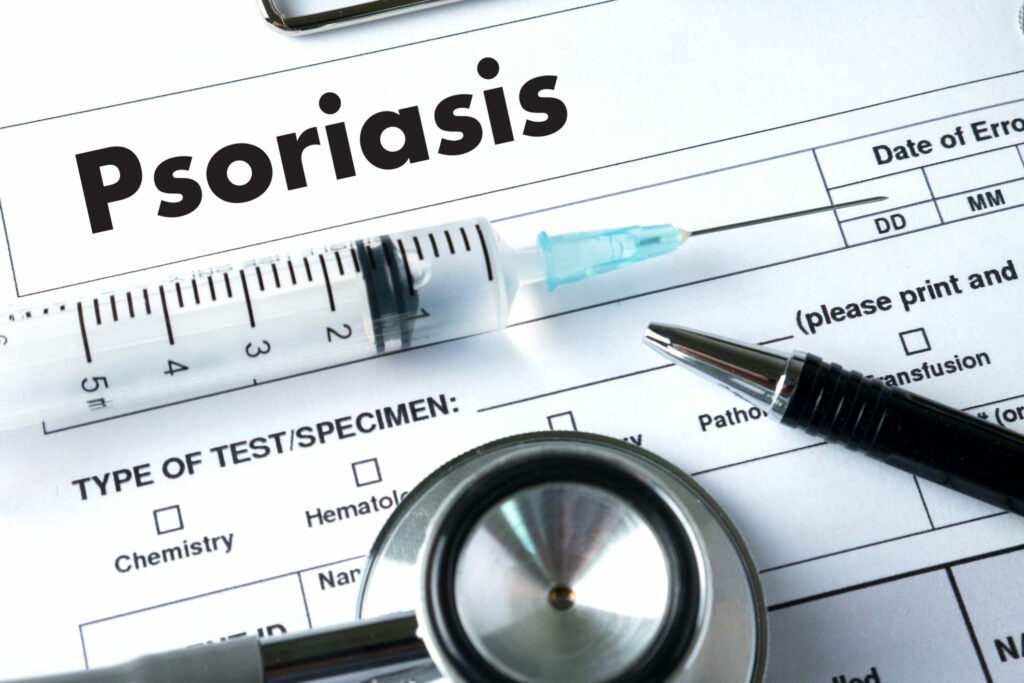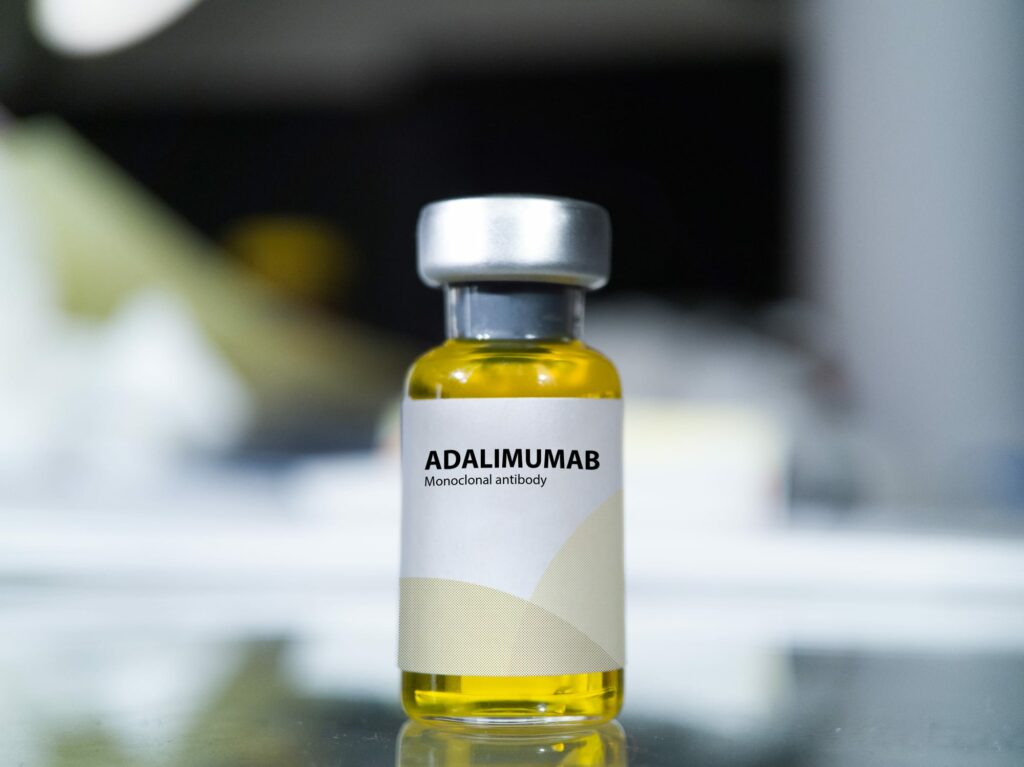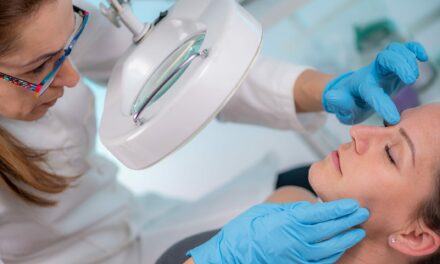New biologic therapies offer promising advancements in the treatment of chronic skin conditions, providing targeted options for patients.
Chronic skin diseases such as psoriasis, atopic dermatitis, and hidradenitis suppurativa significantly impact patients’ quality of life, and traditional treatments often provide limited relief, prompting the development of biologic therapies. These advanced treatments target specific components of the immune system, offering new hope for patients with chronic dermatological conditions.
Biologics are large, complex molecules derived from living cells. They specifically target proteins and pathways involved in the inflammatory processes underlying many chronic skin diseases. Unlike traditional systemic treatments that affect the entire immune system, biologics provide more precise intervention, potentially reducing side effects.
Advances in Psoriasis Treatment

Psoriasis, a chronic inflammatory skin condition characterized by red, scaly plaques, affects millions worldwide. Traditional treatments include topical agents, phototherapy, and systemic medications. However, biologics have revolutionized psoriasis management by targeting specific immune pathways involved in the disease.
Recent Biologic Treatments Approved for Psoriasis:
- Secukinumab (Cosentyx): An IL-17A inhibitor, secukinumab has shown significant efficacy in clearing skin lesions and improving quality of life for psoriasis patients. Clinical trials have demonstrated its long-term safety and effectiveness^1.
- Ixekizumab (Taltz): Another IL-17A inhibitor, ixekizumab, has proven effective in treating moderate to severe psoriasis. Studies indicate rapid and sustained skin clearance with an acceptable safety profile^2.
- Guselkumab (Tremfya): Targeting the IL-23 pathway, guselkumab offers an innovative approach to psoriasis treatment. Clinical trials report high rates of skin clearance and improved patient outcomes^3.
Breakthroughs in Atopic Dermatitis Management
Atopic dermatitis (AD) is a chronic, relapsing inflammatory skin disease characterized by intense itching and eczematous lesions. Traditional treatments often include topical steroids and systemic immunosuppressants. Recently, biologics have emerged as a promising option for severe AD.
New Biologics Targeting Specific Pathways:
- Dupilumab (Dupixent): Dupilumab targets the IL-4 and IL-13 pathways, key drivers of inflammation in AD. Clinical trials and real-world data show substantial improvements in skin lesions and pruritus, with a favorable safety profile^4.
- Tralokinumab (Adtralza): Specifically targeting IL-13, tralokinumab has shown promise in reducing symptoms of moderate to severe AD. Recent studies highlight its efficacy in improving skin condition and quality of life^5.
Hidradenitis Suppurativa: Emerging Biologic Therapies

Hidradenitis suppurativa (HS) is a chronic, debilitating condition characterized by painful nodules and abscesses in the skin folds. Traditional treatments often fail to provide adequate relief, leading to a significant burden for patients.
Innovative Biologic Treatments for HS:
- Adalimumab (Humira): As a TNF-alpha inhibitor, adalimumab has been the first biologic approved for HS. Clinical trials have shown significant reduction in lesion count and pain, marking a substantial improvement in patient outcomes^6.
- Infliximab (Remicade): Another TNF-alpha inhibitor, infliximab has been used off-label for HS with positive results. Studies indicate its potential in reducing disease severity and improving quality of life^7.
Biologic therapies represent a significant advancement in the treatment of chronic skin diseases, offering targeted and effective options for patients with conditions like psoriasis, atopic dermatitis, and hidradenitis suppurativa. Ongoing research and development continue to expand the therapeutic landscape, promising even better outcomes for patients in the future.
References
- Langley, R. G., Elewski, B. E., Lebwohl, M., et al. (2014). Secukinumab in plaque psoriasis—results of two phase 3 trials. New England Journal of Medicine, 371(4), 326-338.
- Griffiths, C. E. M., Reich, K., Lebwohl, M., et al. (2015). Comparison of ixekizumab with etanercept or placebo in moderate-to-severe psoriasis (UNCOVER-2 and UNCOVER-3): results from two phase 3 randomised trials. The Lancet, 386(9993), 541-551.
- Blauvelt, A., Papp, K. A., Griffiths, C. E. M., et al. (2017). Efficacy and safety of guselkumab, an IL-23–specific monoclonal antibody, compared with adalimumab for the treatment of moderate to severe plaque psoriasis (VOYAGE 1 and VOYAGE 2): results from two randomised, double-blind, placebo-controlled, phase 3 studies. The Lancet, 390(10091), 228-239.
- Simpson, E. L., Bieber, T., Guttman-Yassky, E., et al. (2016). Two phase 3 trials of dupilumab versus placebo in atopic dermatitis. New England Journal of Medicine, 375(24), 2335-2348.
- Silverberg, J. I., Toth, D., Bieber, T., et al. (2021). Tralokinumab in moderate-to-severe atopic dermatitis: results from two 52-week, randomized, double-blind, placebo-controlled phase III trials (ECZTRA 1 and ECZTRA 2). British Journal of Dermatology, 184(3), 437-449.
- Kimball, A. B., Okun, M. M., Williams, D. A., et al. (2016). Two phase 3 trials of adalimumab for hidradenitis suppurativa. New England Journal of Medicine, 375(5), 422-434.
- Grant, A., Gonzalez, T., Montgomery, M. O., et al. (2010). Infliximab therapy for patients with moderate to severe hidradenitis suppurativa: a randomized, double-blind, placebo-controlled crossover trial. Journal of the American Academy of Dermatology, 62(2), 205-217.
Photo 149835482 © Shutter2u | Dreamstime.com



